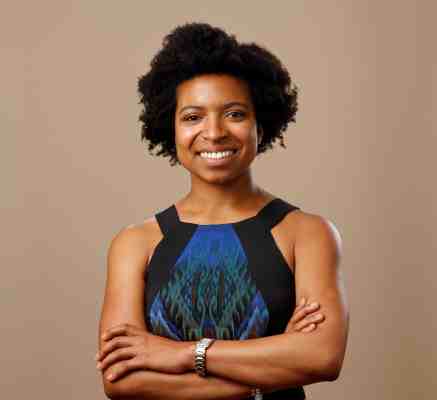Sydney Thomas, who was the first hire at Precursor Ventures, a seed and early-stage focused fund that backs first-time founders, is starting her own venture firm. The investor is going from principal at the firm she joined 6 years ago to the solo-partner behind a new, unnamed firm. The job move may feel like a leap in this environment — as institutionally backed investors warn that emerging fund managers will struggle to raise debut funds given LP freeze-ups — but Thomas doesn’t quite agree.
“I think it’s crazy to start a fund in any environment,” Thomas told TechCrunch. “I haven’t paid a lot of attention to a lot of the discussions because I learned recently that early-stage markets have zero correlation to the stock market more generally; and the over-indexing, or over-correction that is happening in the stock market is not actually reasonable for early-stage investors.”
Thomas declined to share what type of fund she’s raising — if it’s a 506(c) or a 506(b) — or what her average check size could look like. Her firm doesn’t yet have a website or a name, but she’ll spend the next few months heading into builder mode before opening up the inbox for investments.
While her new gig is clearly still very early stage, Thomas will focus on addressing a gap she noticed during her 6 years — and 250 companies’ worth of experience — at Precursor. She wants to build a fund that backs founders at the pre-seed stage and then doubles down on them in the seed stage.
“It sounds very normalized, but it actually isn’t,” she said. “A lot of other firms and multi-stage firms outsource the pre-seed bucket to a Scout program, and so the partners that actually have the funds aren’t as intricately involved in a founder’s everyday.” This reality means that many of the startups that may turn to a multi-stage firm for their first checks will get lost in the sea as senior partners don’t really connect with them for follow-on funding. The investor thinks that founders are looking for a high-conviction, pre-seed partner who is interested in leading the next deal. “And given what I’ve seen in the landscape…that is novel,” she added.
As for if Thomas’ firm is competitive with her former employer, it’s too soon to tell. A lot of the specifics are still being figured out, but, similar to Precursor, she is focusing on first-check funding and early-stage entrepreneurs. The future firm could clearly differ by picking a specific vertical, geography or founder background as an initial focus. For what it’s worth, she’s been working on a thesis since 2017 about companies that give real people more agency over their lives. (Real People would be a good name for a VC firm, just saying).
Thomas was hired by Charles Hudson, the founder of Precursor Ventures, in 2016 after graduating from the Haas School of Business at Berkeley. Hudson declined to comment but previously told TechCrunch about Thomas’ interest in the operational work of streamlining solo-GP funds, even when the firm was handling less than $5 million in committed capital. Today, Precursor has raised tens of millions in venture financing to back other startups, and Thomas, who started as an intern, is scaling the playbook elsewhere.
“It feels like getting the avengers back together,” she said, referring to limited partners that she spoke to when first at Precursor. “I’m calling up the same people that I was working with six years ago and I’ve just been completely floored by the support that I’ve gotten and the good will.”
The investor says she always wanted to start a fund, but it wasn’t until 2020 that she saw barriers to entry in venture actually fall in a meaningful way. The “radical shift” in the venture, as Thomas describes in a post, was underscored by big news items – like the first $1 billion Black-owned fund to the largest women-founded firm – as well as a software push from companies including “Carta, Angellist, Flow, Allocate, Recast, Raise, Bridge, Coolwater, Strut and others.”
Thomas’ move means even more given the lack of diversity in partner ranks across the broader venture ecosystem. Despite progress, roles within venture have grown increasingly, and often intentionally, vague over time. At any given fund, there can be principals, investors, partners, investing principal partners and senior associate investors. Depending on the fund, each person could just go under the guise of “partner” and call it a day. Thomas was set to join the partner track at Precursor – she’s been leading deals there for two years – but she’s jumping ahead to start a career with her own investment autonomy and decision-making authority. Thomas will transition to a venture partner role at Precursor. She said that the role means she can stick to her recurring meetings with founders but declined to comment if she will be staying on Precursor’s payroll or what her financial relationship will look like with the firm.
“Once I started [investing], in very much Virgo energy, I could not stop thinking about it,” Thomas said during the interview. “So, I decided to jump into it.”

